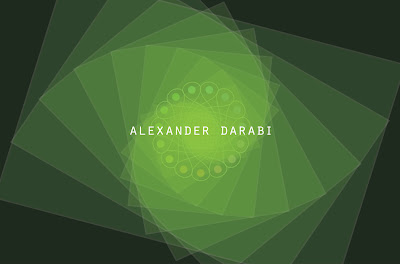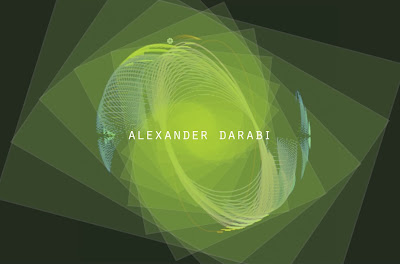Right now the collective VIA is in a great position to take the world by storm with some cutting edge visuals and formation with musicians and live-performers to create some mega live-sets. The promotional DVDs we have put together will be constantly updated with new installations, performances and concepts we are planning throughout the summer. These ideas include: Mapping and 3D diagrammatic projections, live performance interactive dancing with projection, interactive animation projection and also some more hand-drawn frame by frame animations focused on colour and high energy. We are also in the process of drafting the work of a new addition to the collective, David Kitson, whose vivid and slightly disturbing renditions will impact the audience in a humorous way. Below is a showr-reel of Dave’s work:
Slightly reminiscent of Cyriak Harris’ work I think in the right context this kind of shocking visual imagery could be just what the VIA collective needs. Dave is also a composer of music which is really useful when working with visuals, when different VSTs and rhythms can be attributed so different visual effects and tones.
Category: Uncategorized
Innovation
So, continuing my experimentation with the time fountain, ardruino based programming (for interactive installations),graphic processing language, the vvvv programming language and 3D mapping, I am still trying to use all of these technological processes to create a combined interactive, projected installation. The time fountain, although I have made some major advancements with it (which I will document in the next few days) has to be dropped from the rest of my innovation project, as it is too different a concept to the other ideas to work. Instead I think a combination of the mapping and an evolving script written in vvvv (v4), a language designed specifically for video in 3D space.
Business Card
Rendering
The past few weeks I have been rendering quite alot, and now I believe I have it down to a ‘T”. For loops that are to be used in the VJing software, a codec is required to make them run with less strain on the processor. Using DXV and Pic-Video, and the resolution of 640×480, Pixel aspect ratio: 4:3, I have now have the complete library of Loops ready to go. For other formats like Laura and Charlotte’s ‘Lady in the Rain’ I suggested the DV-PAL settings, for it to be played on television, and an uncompressed Quicktime codec of photo-jpeg. This avoids any interlacing and although it will not always play in full-speed the first time, it allows for maximum compatibility, without distorting the image too much. It is also the same resolution that Laura and Charlotte were working in and therefore no up-scaling was necessary.
Lady in the Rain Special FX

Laura and Charlotte have asked me to add some special effects onto the finished animation ‘Lady in the Rain’. I was only too happy to oblige, as it would improve my knowledge of after effects and I really liked the style of the animation already and thought it would be great to get involved in its production somehow. Above is a still of the final shot where I added in the particle trail behind the figure on the bicycle and the rain emerging from the rain cloud below him. I wanted to keep the effects quite subtle and not overshadow the already picturesque image behind it. I had abit of trouble masking the rain effect in the bottom of the screen, but eventually managed it by layering a few different masks.
Spirocode Development
Versions 1, 2 and 3 of the script I have built using the processing programming language. Unfortunately I am struggling to embed the Java end of the applet into blogger, hence the non-functional link in my last post. I am really pleased with the way that I have made the colour evolve with every transform (V2), but also opened up a new field of sound reactive form at different increments of the rotation (V3), this made me realise that by syncing the bars of a song with half or quarter of a turn, a different pattern will emerge from different songs. To show you what I mean by this the last v3 still displays a single clap which, when repeated, could form the patterns I am discussing. In versions 2 and 3 the pattern of the Spirograph can also be modified with the value of mouseX.


Although this is an extremely interesting and satisfying method of producing some interesting animations. I am slightly concerned at the amount of time it has taken up for a relatively uninspiring result. I am also open to skepticism that it does not really constitute animation as the drawing is fully automated through the code.
Arduino Time Fountain Innovation
Using an Arduino analogue electronics board I am attempting to create a fountain installation that makes a a stream of water droplets appear as though they are moving backwards in time. This aliasing effect is created by a strobe light that illuminates the droplets at certain intervals, often seen when filming a car wheel or helicopter blades. I really like how the illusion works in realtime in much the same way as a television or projector does. However, when we are able to actually interact with the animation directly, shown in the video below, it becomes a whole and complete illusion.
The electronics I am using in the Arduino are simply a means of powering and controling the rate of the strobe light and pump. Hopefully it will have some other applications when working on my innovation, especially with midi and interactive installations.
The code I am using to control the arduino board, which is coincidentally based on the processing programming language.
Processing Progress
Here is a graphic I managed to create from cratch just using the processing language. Although it is a very simple shape, I hope to develop the colour array as the oval shape is transformed. It would also be really nice to get some 3D movement in there, something which I am working on at the moment with the help of ‘Processing for Flash Developers’ by Ira Greenberg.
Cells4D
 High paced travel through space along a carpet of cells. I often visualise music as travelling through space, perhaps on the back of a rocket! I think this is one of the most effective visualisations of music whereby the drums are the engine driving you and the instruments could represent passing stars, nebulas and galaxies.
High paced travel through space along a carpet of cells. I often visualise music as travelling through space, perhaps on the back of a rocket! I think this is one of the most effective visualisations of music whereby the drums are the engine driving you and the instruments could represent passing stars, nebulas and galaxies.
This is possibly one of the first and best examples of sculpture mapping that I have seen. I find the simple effects on this 3D abstract sculpture stunning when in motion. I imagine that the sculpture was specifically designed to exemplify this technique. I also really like the idea of the piece being A/V, with sound effects reinforcing the visual, augmented reality of the sculpture. I usually describe mapping to people as virtual reality-reality, which is pretty much summed up by the description of augmentation. By placing the sculpture in the corner of the exhibition Valbuena has restricted the viewpoint to less than 180 degrees, making sure that the lines match up for the viewer and eliminating the need for more than one projector.





